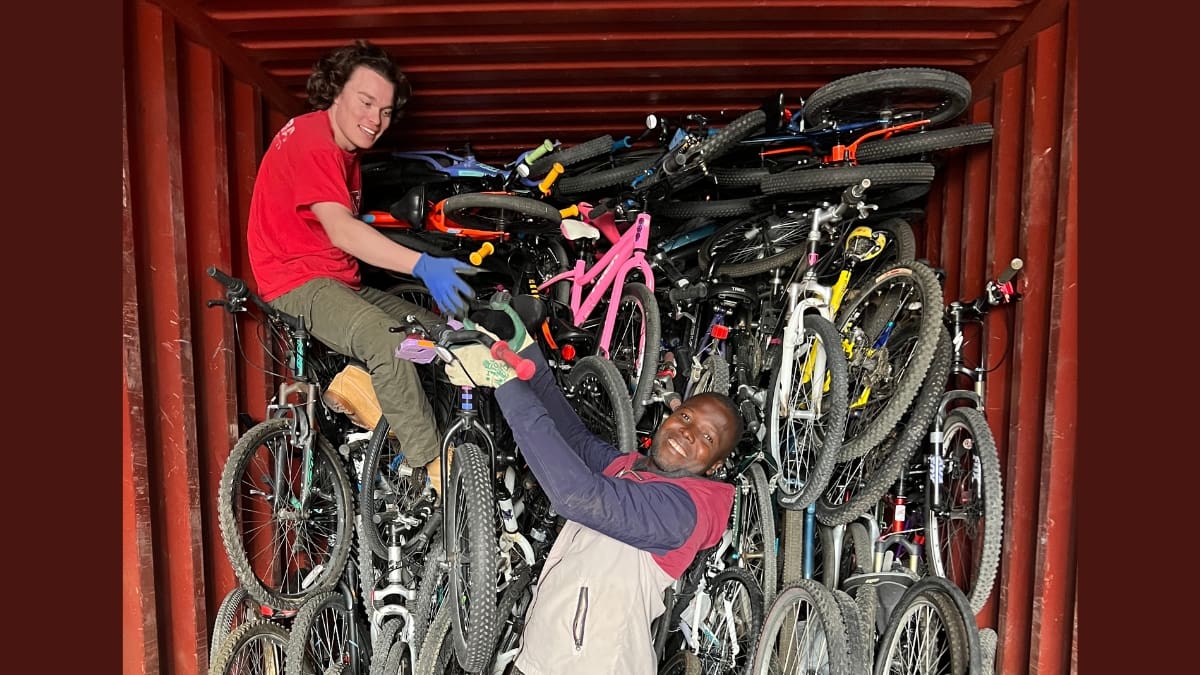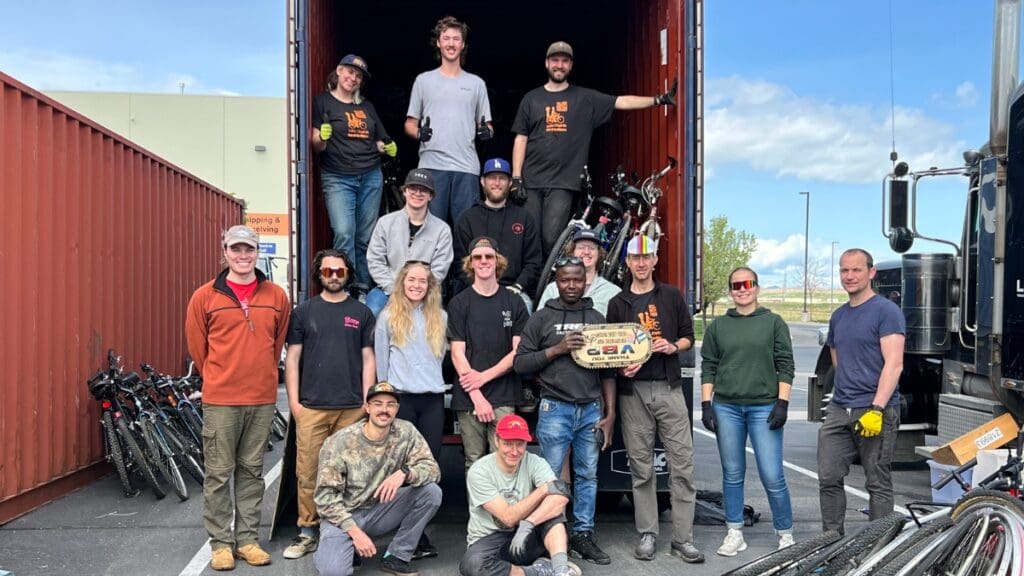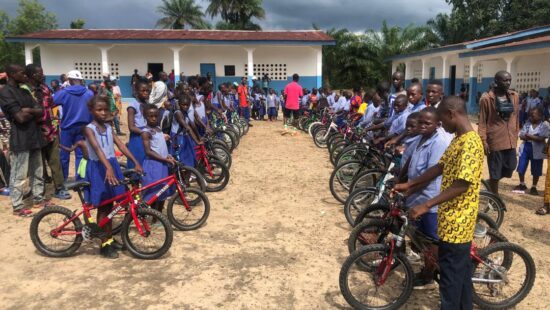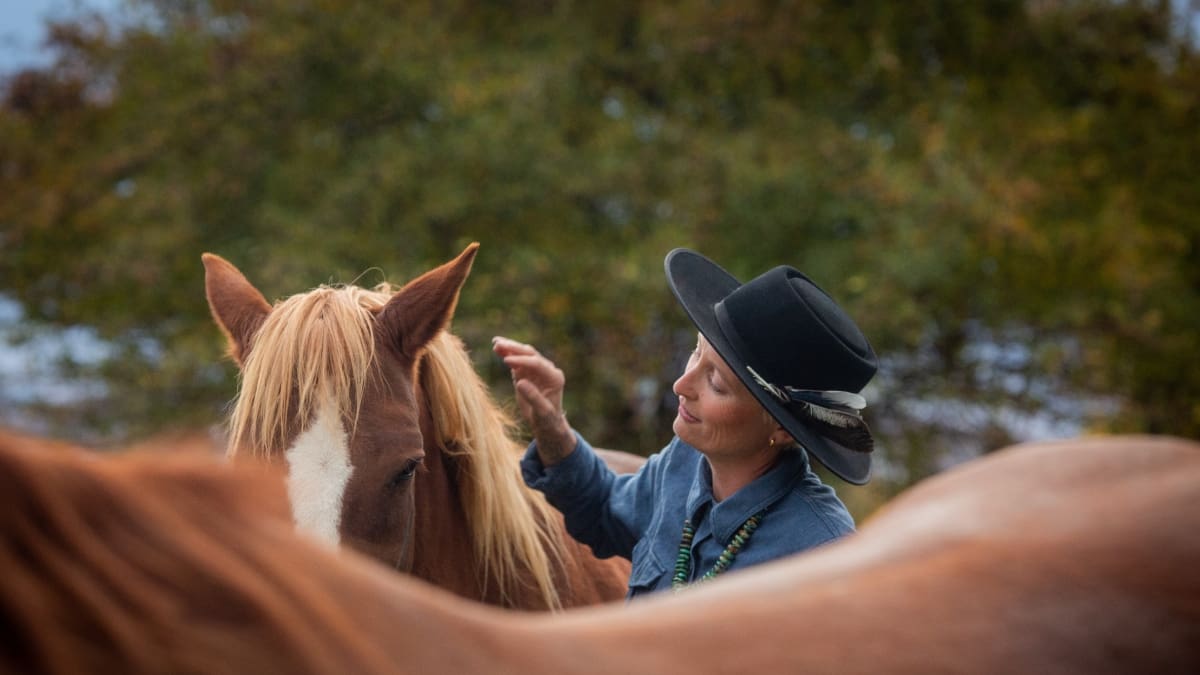NonProfit
Ride on: Park City’s annual bike drive turns local cycles into global solutions

VBP volunteer J.T. and Sierra Leone country director Karim Kamara loading a shipping container in Salt Lake City after 2023's Park City Bike Drive to ship to Freetown, Sierra Leone. Photo: Jamie May // Village Bicycle Project
"In the U.S., biking is predominantly a form of recreation, whereas in many developing countries, it's a vital mode of transportation . . . For families living 15 miles from the nearest school, the lack of transportation options might mean children stay home to work in the fields instead of getting an education," May said.
PARK CITY, Utah — On May 18th, Park City will host the 4th Annual Spring Bike Drop, organized by the Village Bicycle Project, at the Canyons Village Cabriolet Parking Lot at Park City Mountain Resort. From 9 a.m. to 1 p.m., community members are invited to donate used bicycles and cycling gear to support sustainable transportation initiatives in Africa.
This year’s bike drive continues a tradition rooted in a deep local appreciation for cycling and community service. Inspired by Village Bicycle Project board member Jamie May’s previous volunteer work with Bikes for the World in North Carolina, the event aims to leverage Park City’s thriving cycling culture for a global cause. It encourages donations of all types of bikes, particularly mountain bikes suited for the rugged terrain of West Africa.
“We see a lot of potential in Park City. Everyone around here mountain bikes or trail bikes, and has old bikes that they hang on to because they’re good bikes. They’re not broken and they seemingly have value, but they don’t ride them because they now have the latest 29’er and carbon technology, etc.,” May said. “These old bikes that are indestructible, and they’re really good, but no one is going to pull it off the shelf to ride anymore. Those are the bikes we are looking for.”
The collected bikes are then packed into shipping containers and sent to Africa, where they play a crucial role in enhancing mobility for education and economic opportunities.

“In the U.S., biking is predominantly a form of recreation, whereas in many developing countries, it’s a vital mode of transportation. This distinction is particularly crucial in remote villages where access to transportation can determine whether children attend school. For families living 15 miles from the nearest school, the lack of transportation options might mean children stay home to work in the fields instead of getting an education,” May said. “However, owning a bicycle can bridge this gap, enabling children to ride to town for school. This not only opens up educational opportunities but also future employment prospects beyond their village, transforming a simple bike into a tool for significant social change.”
Since its inception, the annual bike drive has grown into a key component of the regional efforts to support international communities. “Each year, as more people learn about our mission, they come forward to support us. It’s heartening to see our community contribute to such a powerful cause,” May said.
The organization has managed to ship one container, approximately 500 bikes, annually from Utah, with additional contributions from partner organizations across the U.S. and the U.K. May mentions that the organization sends upwards of 20 shipping containers of bikes per year. While the shipping containers are donated to them, offsetting costs, the price to ship still requires the need for funding.
Prior to the COVID-19 pandemic, shipping costs averaged around $3,500 to $4,500 per container. Now, even after shipping fluctuations settled post-pandemic, the costs still run between $8,000 and $10,000 per container. However, despite the challenges posed by fluctuating shipping costs, the Village Bicycle Project has adapted and continued to meet its goals.
“If you think about it, all the bikes are free or they’re donated, and these are good bikes—valuable mountain bikes that have real value, transforming someone’s life in Africa,” May said. “It’s pretty cheap when you consider that getting 500 bikes into people’s hands costs just $10,000, which, despite being more expensive than it used to be, is still very much a mission that is worth doing.”
The initiative has seen increasing success over the years, forming a significant part of Park City’s charitable landscape. As more people become aware of the project, the organization hopes to reach a tipping point of community involvement, making each bike drive more successful than the last. Financial contributions are also welcomed for those interested in supporting the cause but unable to donate a bike. These funds are crucial for covering shipping costs and supporting the operational efforts in Africa, including educational programs that promote cycling as a sustainable mode of transportation.
“There are people on our board every year who go to Africa and can remember specific bikes that they packed or collected for donations in the U.S., and they see people riding them on these remote dirt roads in rural villages of Ghana. How freaking cool is that?” May said. “That’s pretty cool to actually see the human impact of this project and what it means to get these bikes over there.”
For more information or to donate, please visit the Village Bicycle Project’s website or contact Jamie May directly at (801) 633-1676.



















